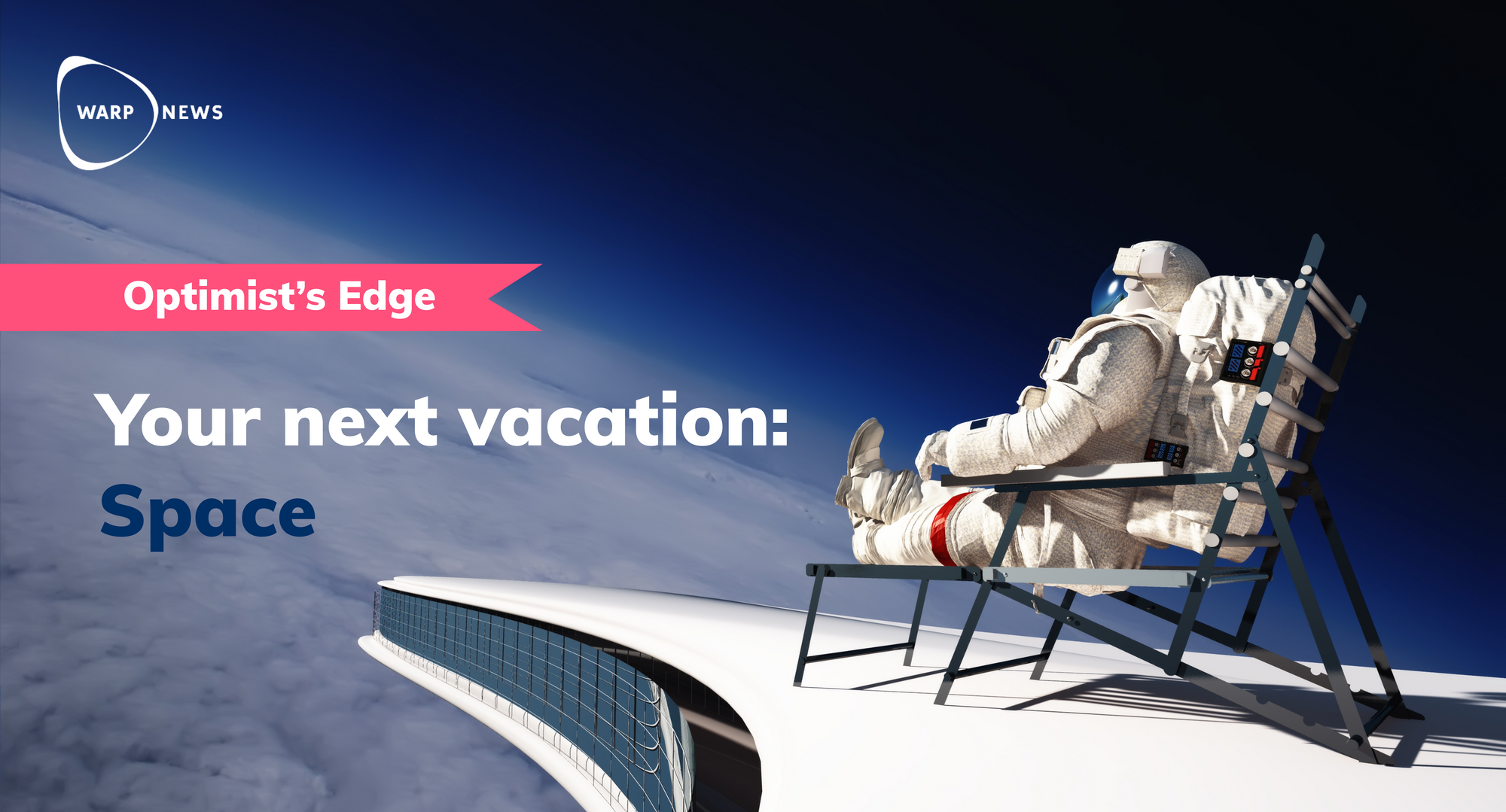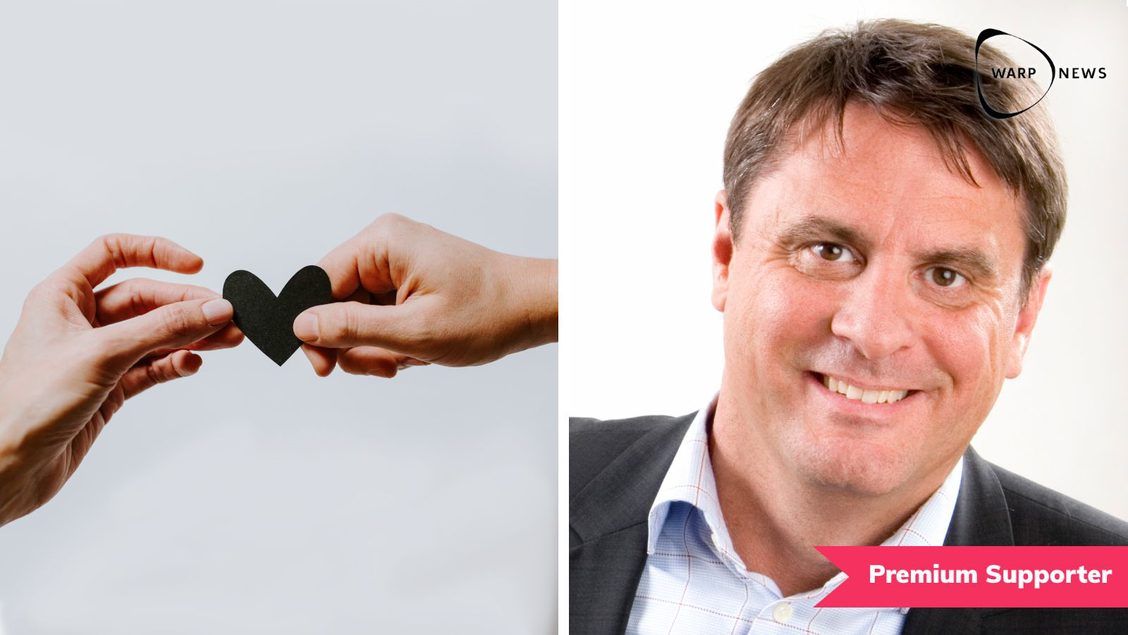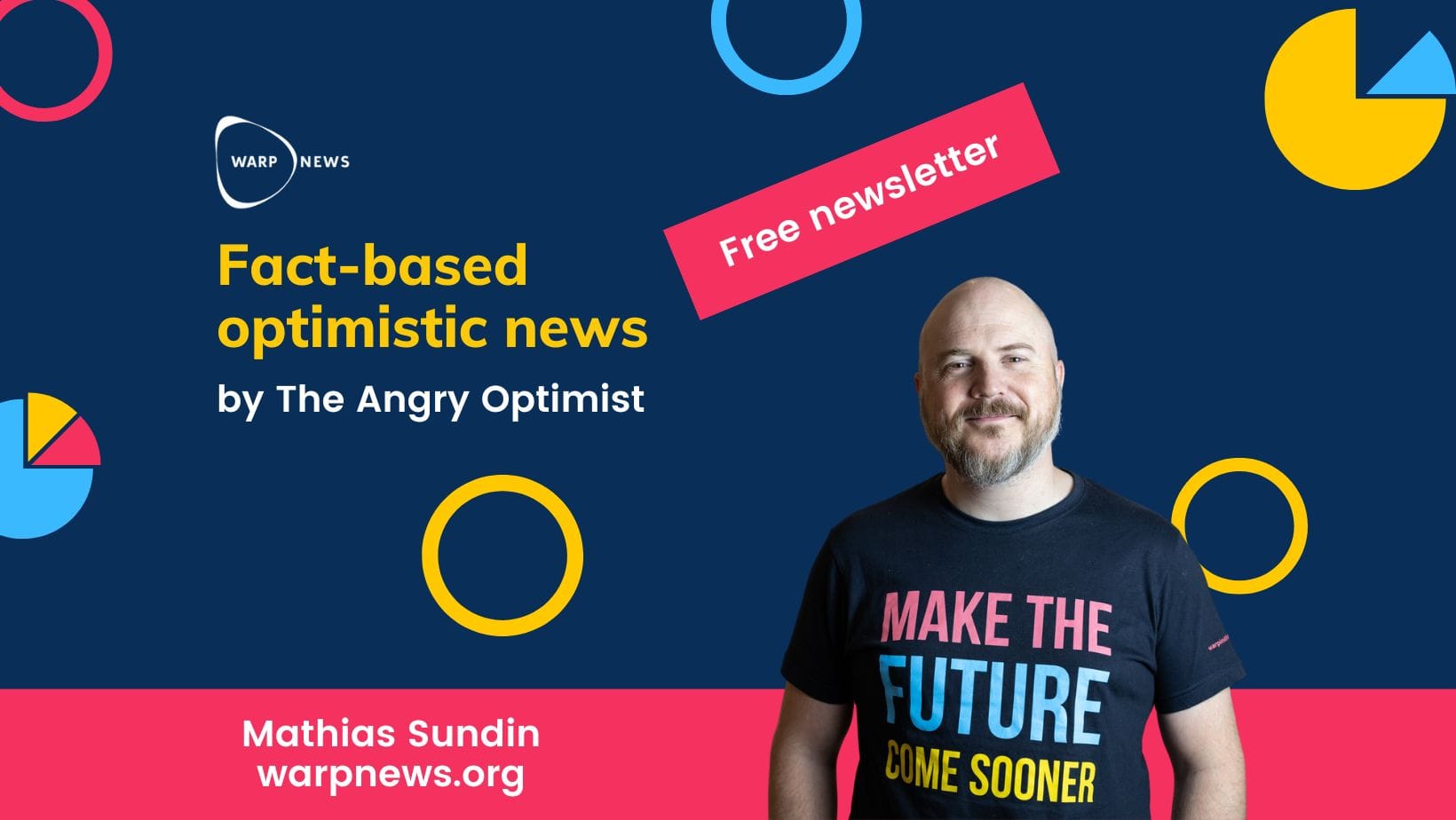
Share this story!
This newsletter is sent out to over 15,000 people every week. Subscribe here.
💡 Several optimistic edges
In April we launched the new format for Optimist's Edge.
The edge optimists get when they look at facts, instead of negative headlines.
We have now published seven edges.
- This is when electric cars will be cheaper than petrol cars (open)
- Get to know the tech that makes digital assets as scarce and valuable as physical
- According to MIT this law is the best way to predict the future
- Finding love online works better than most people think
- Cell-grown burgers will be cheaper than cow-grown burgers
- Forget landfills - recyclers have big plans for electric car batteries
- Going to space will be a lot cheaper than you think
You can get access to them by becoming a Premium Supporter.
Then you'll also support our mission of making people more optimistic about the future by spreading fact-based optimistic news.
It costs $10 per month, but the first 30 days are free.
👉 Become a Premium Supporter
💡 Optimist's Edge: Going to space will be a lot cheaper than you think

90% percent believe they’ll never be able to afford to go to space. That is wrong.
Seven out of every ten people could afford that in just ten years.
This is how much you need to save every month to go to space.
💡 Optimist's Edge: Going to space will be a lot cheaper than you think
The article is exclusive to our Premium Supporters. In a minute you can register and get immediate access to it.
The first month is free and you can cancel at any time if you wish.
Mathias Sundin
CEO of Warp News
Chairman of Warp Institute
🙏The benefits of gratitude

Being grateful does good for your health and well-being, but what does it mean really? And how can you start to practice it?
👉 Read this Premium Supporter article on Warp News.
Fact-based optimistic news of the week
🦠 Gut bacteria can decrease the side-effects of chemotherapy
A new study shows that certain types of gut bacteria could help protect other beneficial bacteria that would otherwise be eliminated by the drugs used in chemotherapy.
🌳 AI tool helps cities know where to plant more trees
A new AI mapping tool shows cities where they should plant more trees in order to lower the temperature.
🛰 Worlds first satellite surveillance of corals
Scientists have launched the world’s first global, satellite-based reef monitoring system that can track global coral bleaching events in near-real-time.
🚗 New AI tool helps self-driving cars navigate on snowy roads
By training an AI on sensor data researchers hopes to create an AI that can monitor a car in snowy conditions.
🚘Germany has approved a law that allows self-driving cars
Germany has as the first country in the world passed a bill that permits self-driving cars of level 4, in certain areas all over the country.
🐘 Kenya is counting all of its wild animals for the first time
Kenya is doing a counting of all the wildlife, land-living, and marine, throughout their 58 national parks in order to create stronger conservation strategies.
☢ A new detector makes it harder to smuggle radioactive material
A new detector built by researchers at KTH can detect grams of radioactivity. The new technology could be useful in, for example, airports.
📱 Africa Connecting – Unleashing the Power of Billions
There is a digital revolution going on in Africa – in part driven by the world's highest concentration of young people. This is what you need to know about it.
🧬Gene Therapy could help children without an immune system
In a new study, 48 out of 50 children with severe immune disease were cured. The results were recently presented in the New England Journal of Medicine.
By becoming a premium supporter, you help in the creation and sharing of fact-based optimistic news all over the world.
